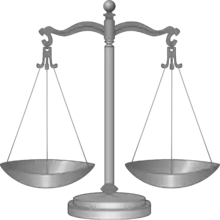Hecataeus of Abdera
Hecataeus of Abdera or of Teos (Greek: Ἑκαταῖος ὁ Ἀβδηρίτης), was a Greek historian and Pyrrhonist philosopher who flourished in the 4th century BC.
- See Hecataeus of Miletus for the earlier historian.
| Part of a series on |
| Pyrrhonism |
|---|
 |
|
|
Life
Diogenes Laërtius (ix.61) relates that he was a student of Pyrrho, along with Timon of Phlius and Nausiphanes of Teos, and includes him among the Pyrrhoneans. Diodorus Siculus (i.46.8) tells us that Hecataeus visited Thebes in the times of Ptolemy I Soter, and composed a history of Egypt. Diodorus supplies the comment that many additional Greeks went to and wrote about Egypt in the same period. The Suda gives him the nickname, 'critic grammarian' and says that he lived in the time of the successors to Alexander.[1]
Works
No complete works of Hecataeus have survived, and our knowledge of his writing exists only in fragments located in various ancient Greek and Latin authors' works, primarily in Diodorus Siculus, whose ethnography of Egypt (Bibliotheca historica, Book I) represents by far the largest amount. Diodorus mostly paraphrases Hecataeus, thus it is difficult to extract Hecataeus' actual writings. (as in Karl Wilhelm Ludwig Müller's Fragmenta Historicorum Graecorum).
Hecataeus wrote the work Aegyptiaca[2] or On the Egyptians (the same title of Manetho's later work),[3] both suggestions are based on known titles of other ethnographic works, an account of Egypt’s customs, beliefs and geography, and the single largest fragment from this lost work is held to be Diodorus' account of the Ramesseum, tomb of Osymandyas (i.47-50).
Diodorus (ii.47.1-2) and Apollonius of Rhodes tell of another work by Hecataeus, On the Hyperboreans.[4]
According to the Suda, the 10th century Byzantine encyclopedia, he wrote a treatise on the poetry of Hesiod and Homer, but nothing of them has survived.[5]
His digression on the Jews in Aegiptica was the first mention of them in Greek literature. It was subsequently paraphrased in Diodorus Siculus 40.3.8. A work attributed to him by Josephus On the Jews has been considered spurious by some.[6] However Pucci Ben Zeev, in surveying scholarship on this matter, finds reasons to grant core elements of authenticity in the absence of clear evidence to the contrary.[7]
References
Citations
- Klaus Meister "Hecataeus" (2) of Abdera in Oxford Classical Dictionary 3rd. ed. Oxford; Oxford University Press 1999 p.671
- Wachsmuth (1895), Trüdinger (1918), Burton (1972)
- Jacoby (1943), Murray (1970), Fraser (1972)
- Bezalel Bar-Kochva (1997), "The Structure of an Ethnographical Work", Pseudo-Hecataeus: On the Jews
- Suda online
- OCD3 p.671
- Miriam Pucci Ben Zeev "The Reliability of Josephus Flavius: The Case of Hecateus' and Manentho's Accounts of Jews and Judaism: Fifteen years of contemporary research (1974-1990) Journal for the Studies of Judaism 24 no2. December 1993
Bibliography
- Smith, William, ed. (1890), "Hecataeus", Dictionary of Greek and Roman Antiquities.
- Walton, Francis R. (October 1955), "The Messenger of God in Hecataeus of Abdera", Harvard Theological Review, 48, pp. 255–257.
External links
- Fragments of Hecataeus in Die Fragmente der Vorsokratiker (in German) & (in Greek)